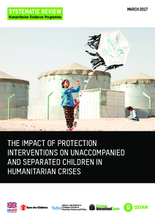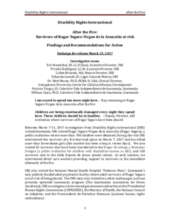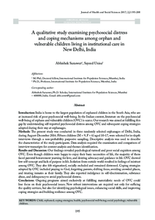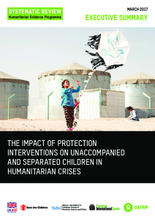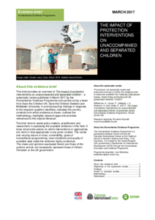Displaying 901 - 910 of 1510
This literature review looks at the most current interventions on safe feeding practices for children with neuromotor disabilities who cannot feed themselves.
This systematic review examines the impact of protection interventions on unaccompanied and separated children, during the period of separation, in humanitarian crises.
This study aimed to assess the prevalence and risk factors of depression, anxiety, stress and low self-esteem among institutional Malaysian adolescents.
Entre el 7 y 11 de marzo de 2017, investigadores de Disability Rights International (DRI) viajaron a Guatemala para entrevistar los sobrevivientes de vivienda institucional. Este documento presente la información recopilada y las recomendaciones de DRI a Guatemala.
DRI’s main finding is that survivors of the fire at Hogar Seguro Virgen de la Asunción face immediate danger – including detention in other institutions where they face continued segregation and abuse.
This study investigated the psychosocial distress and coping mechanisms of institutionalized children living in New Delhi, India.
This article focuses on the confinement of children with disabilities to institutions, social care centers, psychiatric hospitals, and informal traditional healing centers in which children may be detained on the basis of their disability and with no other options for care.
This Executive Summary provides an overview of the systematic review.
This Evidence Brief provides an overview of the systematic review.
This study emphasises different facets of peer exploitation awareness and experience identified in closed-type institutions, including a couple of abusive behaviours that have not been previously identified in long-term residential centres.


